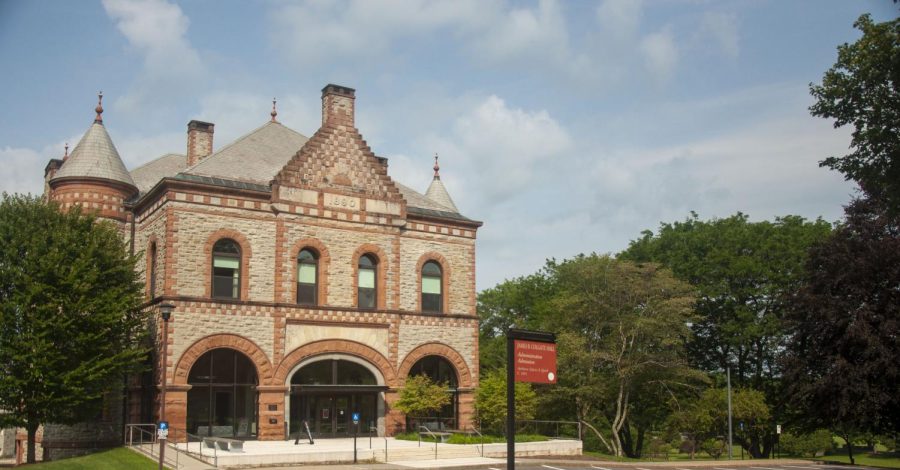Applications for the Class of 2026 Reach Record Numbers
As the application deadline for the Colgate University class of 2026 has passed, the Office of Admission has released statistics that show a record-breaking increase in the number of applications to the University. 21,153 students applied for admission to Colgate across early and regular decision rounds — a 20.6% increase over the class of 2025’s historic application numbers — and compared with two years ago, applications have increased by 146% following the historic 104% spike in applications with the class of 2025.
According to a university press release announcing the “noteworthy growth” in applications, the continuation of this trend was initially suggested by the 31.8% increase in Early Decision (ED) I applications alone as reported in late December. Among this preliminary increase in ED I applications, the university also saw a 35.8% increase in the number of domestic multicultural applicants, more than 100% increase in applicants from the west and southwest regions of the United States, and a 41.1% increase in international applications — all key areas that have been targeted by the university’s efforts to diversify the student body, especially geographically.
Gary Ross, Jones and Wood family vice president for admission and financial aid, expressed gratitude to the Colgate community in light of this growth in applications, particularly as students and faculty have had to work together to respond to the challenges posed by the ongoing COVID-19 pandemic.
“My colleagues in admission and financial aid have been and continue to work so hard to be responsive to not just the guests who have visited campus, but also with the thousands who, due to COVID[-19] concerns or any number of other reasons, have not been able to visit campus,” Ross said.
Programs such as Colgate’s virtual outreach have allowed prospective students to get a feel for the university and its campus despite barriers to in-person visits and experiences, a trend mirroring those nationally across colleges and universities. Ross points to the way initiatives including the Colgate Commitment, a pledge to eliminate the barrier posed by tuition for eligible students, have promoted greater access to the university.
“I have heard the Colgate Commitment referenced by so many college guidance counselors and it leaves no doubt in my mind that having a program like the Colgate Commitment enables many to pursue their Colgate dream, even if just a few years ago they may have thought that for purely financial reasons that dream would not have been possible,” Ross said.
Beyond the Colgate Commitment, the office’s work with Community Based Organizations and other programs like QuestBridge to expand outreach efforts have been cited by both Ross and Paul McLoughlin, Colgate’s vice president and dean of the college, as contributors to the application increases.
“The increase in the number of applications is also validating to my colleagues because it suggests strong student interest in Colgate and our four-year, residential liberal arts education,” McLoughlin said. “One of the opportunities this affords us is to admit the very best students to Colgate, increase our diversity, equity and inclusion goals, and offer a Colgate education in tandem with the Colgate Commitment.”
In addition to the Colgate Commitment, Ross is encouraged by the jump in application numbers in the years since Colgate began its three-year test-optional pilot for all applicants in 2021, 2022 and 2023 amid challenges to testing posed by the pandemic. While this may be the case for some, incoming first-year in the class of 2026 Patrick Eldredge credits other aspects of Colgate for his decision to apply, with the test-optional policy holding no weight on his own choice.
“What drew me to choose Colgate was the amazing coaching staff, the beautiful campus and the opportunity for a fantastic education,” Eldridge said.
Similarly, first-year Chloe Hunt does not credit the test-optional policy in place while she applied, but rather the unique character of Colgate’s campus and the size of the student body for her decision to apply.
“I applied to Colgate because I wanted a small school with big school energy,” she said. “I think it’s great that more people are applying to Colgate, but I don’t want our school to get any bigger,” Hunt said. “I’m worried that admissions is going to keep over enrolling future classes to ensure the acceptance rate doesn’t drop a lot, but I would rather our school become more exclusive than expand.”
Hunt echoed the administration in her desire for a more diverse Colgate — especially geographically — and is an example herself of a student coming from a place from which the university does not typically draw many applicants.
“Coming from a public high school in the city of Chicago, very few people have heard of Colgate, let alone attended,” Hunt said. “In the future, I hope to see more representation from Chicago at Colgate, as well as others from beyond the East coast.”
While McLoughlin acknowledged the challenge of reading and carefully reviewing 146% more applications in just the past two years, he maintains that his team has and will continue to work closely with the Office of Admission to ensure that admitted students will have the best possible experience at Colgate.
“There is no plan to increase class size, so the increase in applications will make us more selective but not necessarily larger,” McLoughlin said, assuaging the fear that an increase in applications means a bigger class size. Conversely, he said, this increase merely means more prospective students from whom to choose, culminating in the ability to “build an even more diverse and academically talented student body through robust application review and generous financial aid.”
While the small class sizes that draw many students to Colgate don’t appear to be threatened by a rise in applications, other current students have voiced their concerns about what an increasingly-selective admissions rate might mean for the university’s culture.
“I hope that if it continues, it doesn’t create a culture of competition,” sophomore William Crounse said of the news of this application trend. “I like that it’s not that way.”
Sophomore Lyra Toulon echoed a similar sentiment.
“I hope that even if it changes the process of admissions, that the culture of the school doesn’t change — culture in terms of getting into classes, and getting into clubs, on-campus opportunities,” Toulon said. “Right now, it’s more supportive, and I hope that it doesn’t change.”
Ellen Lawrence is a senior from Chicago, IL studying philosophy, political science and the Middle East. She previously served as the paper’s Senior Editor...








